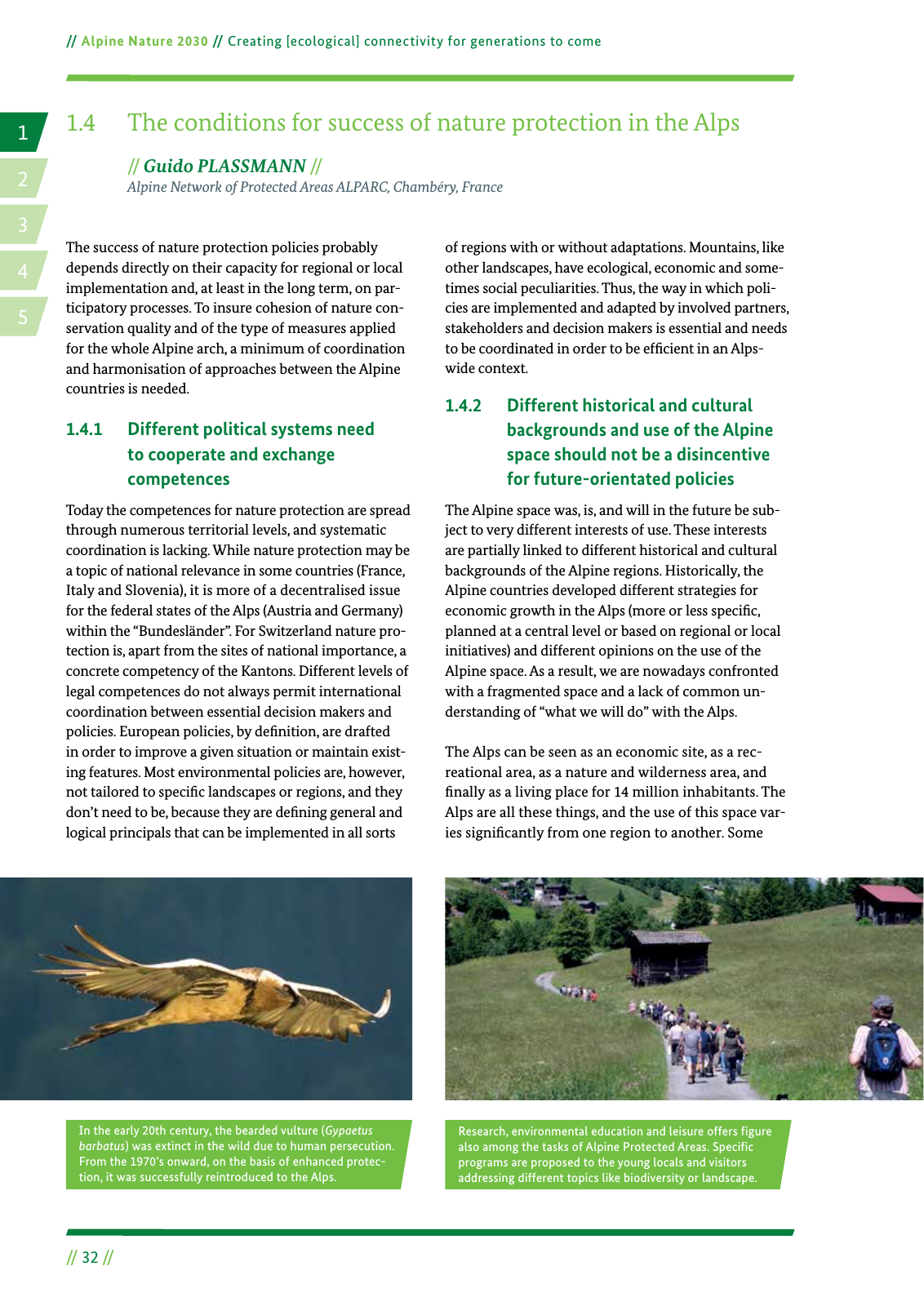14 2 5 3 32 Alpine Nature 2030 Creating ecological connectivity for generations to come Research environmental education and leisure offers figure also among the tasks of Alpine Protected Areas Specific programs are proposed to the young locals and visitors addressing different topics like biodiversity or landscape 1 4 The conditions for success of nature protection in the Alps Guido PLASSMANN Alpine Network of Protected Areas ALPARC Chambéry France The success of nature protection policies probably depends directly on their capacity for regional or local implementation and at least in the long term on par ticipatory processes To insure cohesion of nature con servation quality and of the type of measures applied for the whole Alpine arch a minimum of coordination and harmonisation of approaches between the Alpine countries is needed 1 4 1 Different political systems need to cooperate and exchange competences Today the competences for nature protection are spread through numerous territorial levels and systematic coordination is lacking While nature protection may be a topic of national relevance in some countries France Italy and Slovenia it is more of a decentralised issue for the federal states of the Alps Austria and Germany within the Bundesländer For Switzerland nature pro tection is apart from the sites of national importance a concrete competency of the Kantons Different levels of legal competences do not always permit international coordination between essential decision makers and policies European policies by de nition are drafted in order to improve a given situation or maintain exist ing features Most environmental policies are however not tailored to speci c landscapes or regions and they don t need to be because they are de ning general and logical principals that can be implemented in all sorts of regions with or without adaptations Mountains like other landscapes have ecological economic and some times social peculiarities Thus the way in which poli cies are implemented and adapted by involved partners stakeholders and decision makers is essential and needs to be coordinated in order to be ef cient in an Alps wide context 1 4 2 Different historical and cultural backgrounds and use of the Alpine space should not be a disincentive for future orientated policies The Alpine space was is and will in the future be sub ject to very different interests of use These interests are partially linked to different historical and cultural backgrounds of the Alpine regions Historically the Alpine countries developed different strategies for economic growth in the Alps more or less speci c planned at a central level or based on regional or local initiatives and different opinions on the use of the Alpine space As a result we are nowadays confronted with a fragmented space and a lack of common un derstanding of what we will do with the Alps The Alps can be seen as an economic site as a rec reational area as a nature and wilderness area and nally as a living place for 14 million inhabitants The Alps are all these things and the use of this space var ies signi cantly from one region to another Some In the early 20th century the bearded vulture Gypaetus barbatus was extinct in the wild due to human persecution From the 1970 s onward on the basis of enhanced protec tion it was successfully reintroduced to the Alps

Hinweis: Dies ist eine maschinenlesbare No-Flash Ansicht.
Klicken Sie hier um zur Online-Version zu gelangen.
Klicken Sie hier um zur Online-Version zu gelangen.